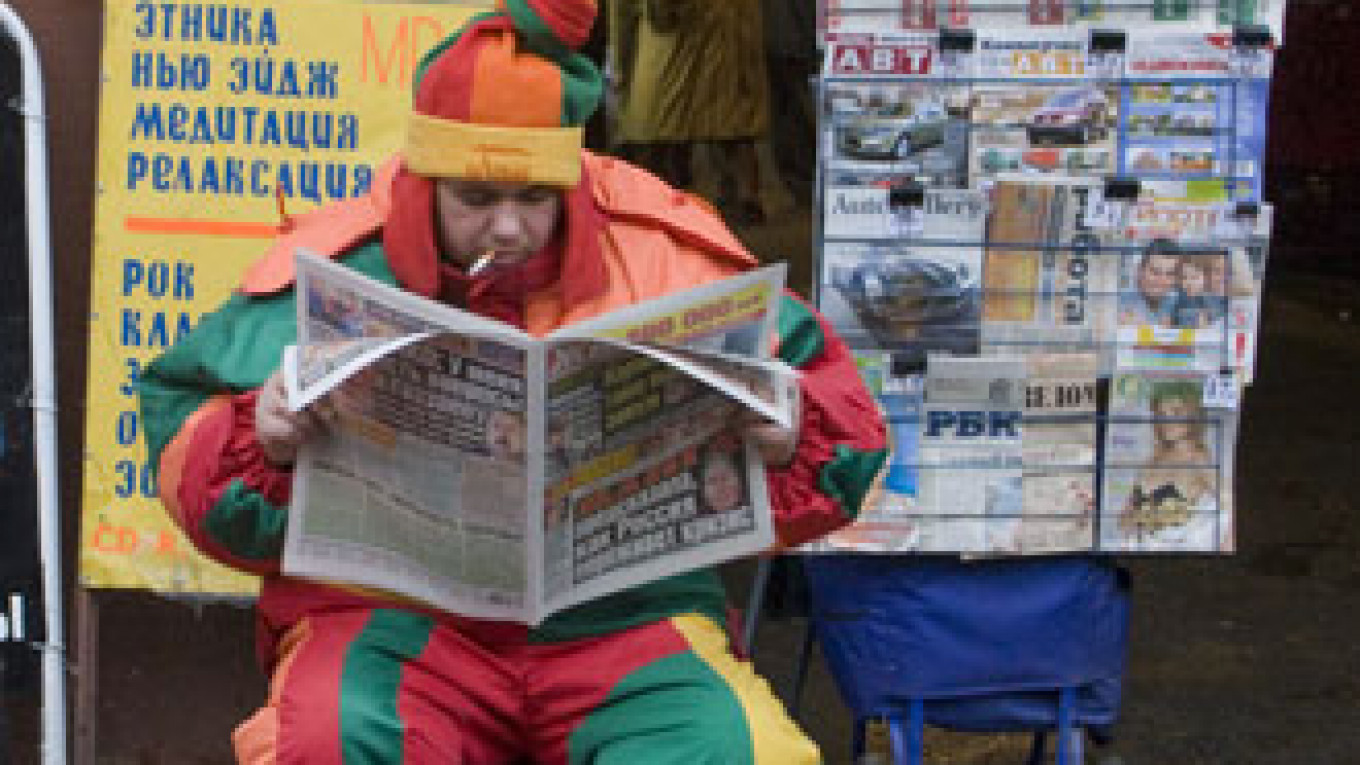Dmitry Medvedev, emancipator of Russia’s media.” That may well be how the current president will go down in history. In this year’s state-of-the-nation address, he signaled that the government would begin selling off its extensive media holdings. That’s a good, indeed a bold move toward unshackling Russia’s subjugated press.
The government has occupied too much of the media landscape for too long. But the subjugation extends far beyond the Kremlin walls. Governors, mayors and other political figures are engaged in media ownership and control throughout all Russia. I hope that Medvedev’s vision for getting the government out of the media business will consider them, too.
But Medvedev’s media initiative will be no easy task. Russia’s media sector has been a dysfunctional mess for decades. It’s not just the government; it’s the business tycoons, too. All these media overlords want to color the news in their own favor and make their competitors look bad. Consumer needs and interests take a backseat.
Westerners find it hard to understand how things got so bad. For the past decade, Vladimir Putin has been a scapegoat. The story goes that he tyrannically clamped down on Russia’s free press. Closer examination reveals, however, that there never was a free press to begin with.
From the beginning of the Russian Federation, laws were imposed that made media business profitability quite elusive. To stay afloat, enterprising media managers formed corrupt alliances with politicians and businessmen. The deal was that those folks would put money into the loss-making media ventures so they could call the shots. As one headline put it, “The Best News Rubles Can Buy.”
That’s still the deal today. Putin repealed the constraining laws in his first term as president. But the corrupt practices had become entrenched and still remain. Now Medvedev just may be able to change all that.
“It’s a waste of money,” Kremlin economic adviser Arkady Dvorkovich said of today’s governmental media ownership. That’s quite an understatement. All the media shenanigans haven’t fooled Russian consumers. Surveys show that they know they’re being fed a phony bill of goods. So the government has been spending money to lie to people who know they’re being lied to. That’s quite a waste.
Dvorkovich went on to say, “It will not do us any good if [the media outlets] fall into the hands of dishonest investors.” But keeping all of the media above board may not be realistic. The important thing is to get at least one consumer-centric media outlet in each major media market. Consumers will recognize who’s there to serve their interests, and who’s not. Market forces will put the phonies in their place. On top of that, the Russian Media Fund, a private sector Russian and American initiative that I support, has a ready-made plan to diminish the role of paid-for news in Russian society. Medvedev should check it out.
And while a government media pullout can’t happen overnight, time is of the essence. Ambitious plans are afoot for modernization, anti-corruption, forward-looking projects like Skolkovo, and new social programs. Their chances of success would be enhanced if Russia were to have a normalized, consumer-centric media industry. But for now, the media is the nation’s most conspicuously corrupt economic sector. Shouldn’t that propel Medvedev’s media initiative to the level of a categorical imperative?
William Dunkerley is a media business analyst and consultant specializing in Russia and the former Soviet Union.
A Message from The Moscow Times:
Dear readers,
We are facing unprecedented challenges. Russia's Prosecutor General's Office has designated The Moscow Times as an "undesirable" organization, criminalizing our work and putting our staff at risk of prosecution. This follows our earlier unjust labeling as a "foreign agent."
These actions are direct attempts to silence independent journalism in Russia. The authorities claim our work "discredits the decisions of the Russian leadership." We see things differently: we strive to provide accurate, unbiased reporting on Russia.
We, the journalists of The Moscow Times, refuse to be silenced. But to continue our work, we need your help.
Your support, no matter how small, makes a world of difference. If you can, please support us monthly starting from just $2. It's quick to set up, and every contribution makes a significant impact.
By supporting The Moscow Times, you're defending open, independent journalism in the face of repression. Thank you for standing with us.
Remind me later.






